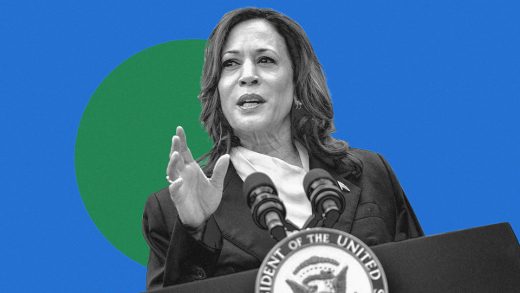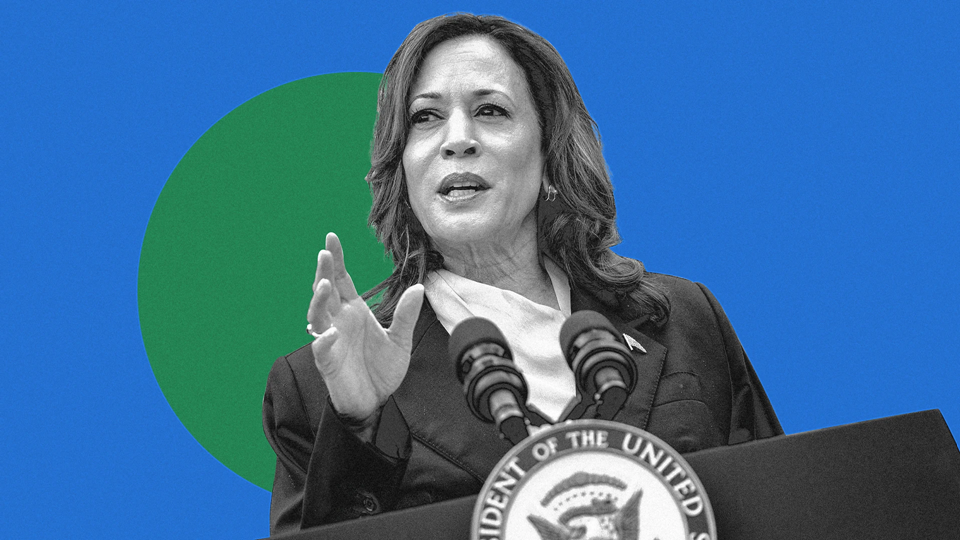What Biden accomplished on climate—and what Kamala Harris could do next
What Biden accomplished on climate—and what Kamala Harris could do next
President Biden has accomplished a long list of climate priorities—and another Democratic administration could do even more.
BY Adele Peters
President Biden has taken more action on climate change than any president in history—though many voters don’t realize that.
The list includes dozens of new policies, from protecting workers from extreme heat to incentivizing billions of dollars in investment in clean energy projects through the Inflation Reduction Act (IRA), the biggest climate bill ever passed. (For every dollar the government has spent because of the IRA, the private sector has spent around five times as much.) Here’s a small sampling of the progress that has been made:
- In 2021, Biden set a goal to cut U.S. emissions in half by 2030. So far, policies have put the country on track to get roughly 80% of the way to that goal.
- The EPA now has the strictest limits ever for pollution from power plants—and all existing coal plants will either soon have to close or capture CO2.
- The EPA tightened the requirements for oil companies to report on emissions of methane, a potent greenhouse gas.
- The Bipartisan Infrastructure Law is giving states $5 billion to build a network of EV chargers; that network is beginning to be built now.
- Strict new auto emission standards mean that car companies are ramping up EV sales.
- New standards for furnaces, washers, fridges, and other appliances will make them more efficient. The IRA is also giving consumers incentives to buy electric heat pumps, electric stoves, and other zero-emission appliances. (These incentives are just beginning to roll out in states, beginning with New York.)
- The U.S. ratified the Kigali Agreement, a global plan to phase out a superpollutant found in air conditioners (pound for pound, these pollutants can trap thousands of times more heat than CO2 in the atmosphere).
- New efficiency standards for federally backed homes will save energy while also cutting power bills.
- Biden reversed dozens of Trump policies, beginning with rejoining the Paris climate agreement.
- The new American Climate Corps is training and hiring young people to work on decarbonization, from installing solar panels to managing forests to help prevent wildfires.
The list goes on. And in some cases, when Biden has been criticized for not doing enough, it’s because he’s been blocked. “Trump-appointed judges overturned executive orders that he did,” says Leah Stokes, a political science professor at the University of California Santa Barbara. “He paused new oil leases on federal land until a Trump-appointed judge overturned that. He stopped new LNG permits until a Trump-appointed judge overturned that. There’s been a long shadow of the four years of Trump.” The Supreme Court has also set new precedent that puts other environmental policy at risk.
One analysis earlier this year calculated that a potential new Trump presidency would mean that the U.S. emits an extra 4 billion metric tons of CO2 by 2030 compared to a Biden presidency. A Kamala Harris presidency (or any other Democratic nominee) could fight to keep Biden’s climate work alive while dealing with continuing legal challenges. Another Democratic administration could also go further, since climate action still hasn’t been ambitious enough to hit climate goals.
“President Biden made historic strides on climate with the Inflation Reduction Act, but there’s still crucial work left to be done,” says Cassidy DiPaola, a spokesperson for the nonprofit Fossil Free Media. The group is calling for the next president to end fossil fuel subsidies and implement a windfall profits tax. “These policies would level the playing field for clean energy and accelerate our transition away from fossil fuels,” she says. “But it isn’t just about fairness, it’s also about responding to overwhelming public demand and ensuring climate accountability. Polling shows 89% of voters want politicians to crack down on price gouging by oil companies, and 76% support a windfall profits tax on Big Oil.”
Right now, fossil fuel companies get around $20 billion in annual subsidies, DiPaola says. “What’s exciting is that Vice President Harris has a strong track record when it comes to holding polluters accountable,” she says. “As California’s attorney general, she supported investigations into Exxon’s climate lies and successfully pursued other major polluters. As president, she could empower the FTC to crack down on industry price gouging and direct the Department of Justice to finally bring federal lawsuits against Big Oil for their climate deception.”
Trump, on the other hand, has strong ties to the fossil fuel industry. At a recent meeting with oil industry executives, he reportedly promised that he would roll back Biden’s EV policies if they gave his campaign $1 billion. “He is not against pandering to corporate interests at the expense of public health and our planet,” DiPaola says. The Project 2025 agenda, a set of conservative policy proposals from Trump allies, “calls for massive fossil fuel expansion and gutting the EPA’s ability to regulate pollution,” she says. “This would not only reverse the progress made under the IRA but significantly set back our climate goals.”
ABOUT THE AUTHOR
(7)



